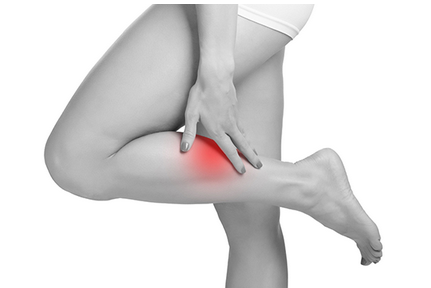– Caffeine and Twitching Muscles
When you feel tired or sluggish, you take coffee as caffeine in the coffee makes you alert, boosts your mental agility, helps you keep in the groove in the morning, and prevents afternoon sluggishness. In spite of all such benefits, excessive caffeine intake is not good for your body and mind as well. Caffeine can trigger muscle twitches or muscle spasms in several parts of the body. Similarly, stress, anxiety, exhaustion, sleep deprivation, and excessive work out can also cause muscle twitches and spasms.
Caffeine and twitching muscles go hand and hand, but
Muscle Twitches and Spasms can also be due to inadequate Electrolytes levels
What could be the reason for the low electrolyte levels in your body?
If you have low levels of electrolytes – the reason could be stress, excessive work pressure, anxiety, dehydration, low water intake, or heavy physical activities.
Your muscles require these electrolytes in proper balance – sodium, magnesium, calcium, and potassium. If they are in proportion, you can work and function properly without feeling weak. If there is an inadequate level in your body, then you may become prone to weakness and muscle spasms, and cramps.
Why do electrolyte levels deplete in your body?
The number one reason is less intake of water or dehydration. Water is an important component of blood. It is vital for almost all body functions – muscles, blood vessels, blood, nervous system and almost every organ of the body needs water to function well. If a person does not drink enough or plenty of water, then he or she may be more likely to have muscle twitches and spasms.
What are the other causes of electrolyte Depletion?
Excessive use of medicines, antacids, and psychotropic medicines. Anti-depressants and the use of other medicines can also deplete your electrolyte levels in the body.
What are the other factors that cause low electrolyte levels?
Excess sporting activity, running, sporting activity, intense exercise, hot and sunny days, and heavy sweating during workouts can deplete electrolytes levels in the body.
If you suffer from chronic diarrhea and vomiting due to food poisoning and bacterial infections you will become prone to electrolyte imbalance and depletion.
Stress
Stress is another culprit for your muscle’s twitching and spasms. Stress affects several organs and systems in the body, including the digestive system, immune system, circulatory system, and even the nervous system. We often blame stress or anxiety for our headaches, migraines, or sleepless nights, but it can also trigger muscle twitches and spasms by creating tension and pain in the muscles. Meditation, yoga, relaxation therapies, reflexology, aromatherapy, aerobics, massage therapy, and regular exercise may help manage stress and anxiety diligently.
Bottom Line
Caffeine and twitching muscles: Excessive caffeine intake, tea intake, and also use of headache medicines can cause headaches and muscle twitches, and muscle spasms. If you suddenly stop taking the required amount of caffeine or headache medicine dose, you are bound to suffer from rebound headaches and muscle twitches. Excessive water and fluid loss due to heavy exercise and sweating can also cause dehydration and electrolyte depletion – which could lead to headaches, muscle twitches, and spasms. If you are unsure of what could be the cause of your regular muscle spasms and twitches then see a neurologist to rule out any underlying serious problem.


